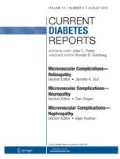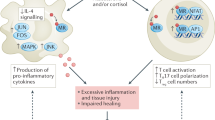Abstract
Purpose of Review
This review focuses on new clinical data involving a novel class of drugs, nonsteroidal mineralocorticoid receptor antagonists (NS-MRAs), specifically, finerenone and its effects on cardiovascular and diabetic kidney disease outcomes.
Recent Findings
NS-MRAs are a novel class of agents for treating diabetic kidney disease (DKD). While they are chemically and pharmacologically distinct from steroidal MRAs (spironolactone, eplerenone), they effectively inhibit the MR receptor differently. Inhibition of MR receptor activation reduces inflammatory and profibrotic pathways involving the cardiorenal/vascular systems. Small diabetic kidney disease (DKD) clinical studies demonstrate that steroidal MRAs reduce albuminuria relative to placebo, although hyperkalemia is a major adverse event that has precluded large outcome trials. The NS-MRA, finerenone, demonstrated slowed progression of DKD and reduction of cardiovascular death primarily driven by reduced heart failure incidence in two separate randomized controlled clinical trials (FIDELIO and FIGARO).
Summary
Use of NS-MRAs, therefore, provides a third “pillar of therapy” to reduce cardiorenal events added to blockers of the renin-angiotensin system and SGLT2 inhibitors. If the pending outcome trial, FLOW, is positive, potentially, GLP1-RAs may also be part of this “pillar” structure.
Similar content being viewed by others
References
Papers of particular interest, published recently, have been highlighted as: • Of importance •• Of major importance
Liyanage T, Ninomiya T, Jha V, Neal B, Patrice HM, Okpechi I, et al. Worldwide access to treatment for end-stage kidney disease: a systematic review. Lancet. 2015;385(9981):1975–82. https://doi.org/10.1016/S0140-6736(14)61601-9.
• Harding JL, Morton JI, Shaw JE, Patzer RE, McDonald SP, Magliano DJ. Changes in excess mortality among adults with diabetes-related end-stage kidney disease: a comparison between the United States and Australia. Nephrol Dial Transplant. 2021. https://doi.org/10.1093/ndt/gfab315. Presents the most recent data that compares mortality rates between United States and Austalia.
Afkarian M, Sachs MC, Kestenbaum B, Hirsch IB, Tuttle KR, Himmelfarb J, et al. Kidney disease and increased mortality risk in type 2 diabetes. J Am Soc Nephrol. 2013;24(2):302–8. https://doi.org/10.1681/ASN.2012070718.
Shunan F, Jiqing Y, Xue D. Effects of angiotensin-converting enzyme inhibitors and angiotensin receptor blockers on cardiovascular events in patients with diabetes and overt nephropathy: a meta-analysis of randomised controlled trials. J Renin Angiotensin Aldosterone Syst. 2018;19(4):1470320318803495. https://doi.org/10.1177/1470320318803495.
McGuire DK, Shih WJ, Cosentino F, Charbonnel B, Cherney DZI, Dagogo-Jack S, et al. Association of SGLT2 inhibitors with cardiovascular and kidney outcomes in patients with type 2 diabetes: A Meta-analysis. JAMA Cardiol. 2021;6(2):148–58. https://doi.org/10.1001/jamacardio.2020.4511.
• Al Dhaybi O, Bakris GL. Non-steroidal mineralocorticoid antagonists: prospects for renoprotection in diabetic kidney disease. Diabetes Obes Metab. 2020;22(Suppl 1):69–76. https://doi.org/10.1111/dom.13983. Explores mechanisms and presents clinical data on how NS-MRA can slow CKD progression.
Alicic RZ, Cox EJ, Neumiller JJ, Tuttle KR. Incretin drugs in diabetic kidney disease: biological mechanisms and clinical evidence. Nat Rev Nephrol. 2021;17(4):227–44. https://doi.org/10.1038/s41581-020-00367-2.
Mehdi UF, Adams-Huet B, Raskin P, Vega GL, Toto RD. Addition of angiotensin receptor blockade or mineralocorticoid antagonism to maximal angiotensin-converting enzyme inhibition in diabetic nephropathy. J Am Soc Nephrol. 2009;20(12):2641–50. https://doi.org/10.1681/ASN.2009070737.
Pitt B, Zannad F, Remme WJ, Cody R, Castaigne A, Perez A, et al. The effect of spironolactone on morbidity and mortality in patients with severe heart failure. Randomized Aldactone Evaluation Study Investigators. N Engl J Med. 1999;341(10):709–17. https://doi.org/10.1056/NEJM199909023411001.
• Agarwal R, Kolkhof P, Bakris G, Bauersachs J, Haller H, Wada T, et al. Steroidal and non-steroidal mineralocorticoid receptor antagonists in cardiorenal medicine. Eur Heart J. 2021;42(2):152–61. https://doi.org/10.1093/eurheartj/ehaa736. Major paper exploring the mechanisms of MRA induced inflammation.
• Barrera-Chimal J, Lima-Posada I, Bakris GL, Jaisser F. Mineralocorticoid receptor antagonists in diabetic kidney disease — mechanistic and therapeutic effects. Nat Rev Nephrol. 2021. https://doi.org/10.1038/s41581-021-00490-8. This a complement to reference 10 and provides a more expansive and detailed description of the mechanisms associated with inflammation and how NS MRA reduce the injury.
•• Ferreira NS, Tostes RC, Paradis P, Schiffrin EL. Aldosterone, inflammation, immune system, and hypertension. Am J Hypertens. 2021;34(1):15–27. https://doi.org/10.1093/ajh/hpaa137. Excellent review of aldosterone and inflammation.
Braden GL, Chapman A, Ellison DH, Gadegbeku CA, Gurley SB, Igarashi P, et al. Advancing nephrology: Division Leaders Advise ASN. Clin J Am Soc Nephrol. 2021;16(2):319–27. https://doi.org/10.2215/CJN.01550220.
Bomback AS, Klemmer PJ. The incidence and implications of aldosterone breakthrough. Nat Clin Pract Nephrol. 2007;3(9):486–92. https://doi.org/10.1038/ncpneph0575.
Sato A, Hayashi K, Naruse M, Saruta T. Effectiveness of aldosterone blockade in patients with diabetic nephropathy. Hypertension. 2003;41(1):64–8. https://doi.org/10.1161/01.hyp.0000044937.95080.e9.
Ai Dhaybi O, Bakris GL. Renal targeted therapies of antihypertensive and cardiovascular drugs for patients with stages 3 through 5d kidney disease. Clin Pharmacol Ther. 2017;102(3):450–8. https://doi.org/10.1002/cpt.758.
•• Kintscher U, Bakris GL, Kolkhof P. Novel non-steroidal mineralocorticoid receptor antagonists in cardiorenal disease. Br J Pharmacol. 2021. https://doi.org/10.1111/bph.15747. Detailed analysis and description of the differences in pharmacology between MRAs and NS-MRAs.
Svensson M, Gustafsson F, Galatius S, Hildebrandt PR, Atar D. How prevalent is hyperkalemia and renal dysfunction during treatment with spironolactone in patients with congestive heart failure? J Card Fail. 2004;10(4):297–303. https://doi.org/10.1016/j.cardfail.2003.10.012.
Dinsdale C, Wani M, Steward J, O’Mahony MS. Tolerability of spironolactone as adjunctive treatment for heart failure in patients over 75 years of age. Age Ageing. 2005;34(4):395–8. https://doi.org/10.1093/ageing/afi104.
Fagart J, Hillisch A, Huyet J, Barfacker L, Fay M, Pleiss U, et al. A new mode of mineralocorticoid receptor antagonism by a potent and selective nonsteroidal molecule. J Biol Chem. 2010;285(39):29932–40. https://doi.org/10.1074/jbc.M110.131342.
Barfacker L, Kuhl A, Hillisch A, Grosser R, Figueroa-Perez S, Heckroth H, et al. Discovery of BAY 94–8862: a nonsteroidal antagonist of the mineralocorticoid receptor for the treatment of cardiorenal diseases. ChemMedChem. 2012;7(8):1385–403. https://doi.org/10.1002/cmdc.201200081.
Kolkhof P, Delbeck M, Kretschmer A, Steinke W, Hartmann E, Barfacker L, et al. Finerenone, a novel selective nonsteroidal mineralocorticoid receptor antagonist protects from rat cardiorenal injury. J Cardiovasc Pharmacol. 2014;64(1):69–78. https://doi.org/10.1097/FJC.0000000000000091.
Pitt B, Kober L, Ponikowski P, Gheorghiade M, Filippatos G, Krum H, et al. Safety and tolerability of the novel non-steroidal mineralocorticoid receptor antagonist BAY 94–8862 in patients with chronic heart failure and mild or moderate chronic kidney disease: a randomized, double-blind trial. Eur Heart J. 2013;34(31):2453–63. https://doi.org/10.1093/eurheartj/eht187.
Filippatos G, Anker SD, Bohm M, Gheorghiade M, Kober L, Krum H, et al. A randomized controlled study of finerenone vs. eplerenone in patients with worsening chronic heart failure and diabetes mellitus and/or chronic kidney disease. Eur Heart J. 2016;37(27):2105–14. https://doi.org/10.1093/eurheartj/ehw132.
Bakris GL, Agarwal R, Chan JC, Cooper ME, Gansevoort RT, Haller H, et al. Effect of finerenone on albuminuria in patients with diabetic nephropathy: a randomized clinical trial. JAMA. 2015;314(9):884–94. https://doi.org/10.1001/jama.2015.10081.
•• Bakris GL, Agarwal R, Anker SD, Pitt B, Ruilope LM, Rossing P, et al. Effect of finerenone on chronic kidney disease outcomes in type 2 diabetes. N Engl J Med. 2020;383(23):2219–29. https://doi.org/10.1056/NEJMoa2025845. The results of the FIDELIO trial.
•• Pitt B, Filippatos G, Agarwal R, Anker SD, Bakris GL, Rossing P, et al. Cardiovascular events with finerenone in kidney disease and type 2 diabetes. N Engl J Med. 2021. https://doi.org/10.1056/NEJMoa2110956. The results of the FIGARO trial.
•• Agarwal R FG, Pitt B, Anker SD, Rossing P, Joseph A, Kolkhof P, Nowack C, Gebel M, Ruilope LM, and Bakris GL; on behalf of the FIDELIO-DKD and FIGARO-DKD investigators. Cardiovascular and kidney outcomes with finerenone in patients with type 2 diabetes and chronic kidney disease: the FIDELITY pooled analysis. Eur Heart J. 2021;In Press. The results of the individual patient level pooled analysis of FIGARO and FIDELIO.
Agarwal R, Fillipatos G, Pitt B. Cardiovascular and kidney outcomes with finerenone in patients with type 2 diabetes and chronic kidney disease: the FIDELITY pooled analysis. Eur Heart J. 2021;00:1–12.
• Kolkhof P, Hartmann E, Freyberger A, Pavkovic M, Mathar I, Sandner P, et al. Effects of Finerenone combined with empagliflozin in a model of hypertension-induced end-organ damage. Am J Nephrol. 2021;52(8):642–52. https://doi.org/10.1159/000516213. Animal study demonstrating the benefits of combining and SGLT2 inibititor and finerenone.
Rossing P FG, Agarwal R, Anker SD, Pitt B, Ruilope LM, Chan JCN, Kooy A, McCafferty K, Schernthaner G, Wanner C, Joseph A, Scheerer MF, Scott C and Bakris GL; on behalf of the FIDELIO-DKD Investigators. Finerenone in Predominantly Advanced CKD and Type 2 Diabetes With or Without Sodium-Glucose Cotransporter-2 Inhibitor Therapy. Kidney Int Rep. 2021;In Press. https://doi.org/10.1016/j.ekir.2021.10.008.
• Agarwal R, Joseph A, Anker S, Filippatos G, Rossing P, Ruilope L, et al. Hyperkalemia risk with finerenone: results from the FIDELIO-DKD Trial. J Am Soc Nephrol. 2021. https://doi.org/10.1681/ASN.2021070942. Detailed analysis of the effects of SGLT2 inhibitor on hyperkalemia risk of finerenone.
Neuen BL, Oshima M, Perkovic V, Agarwal R, Arnott C, Bakris G, et al. Effects of canagliflozin on serum potassium in people with diabetes and chronic kidney disease: the CREDENCE trial. Eur Heart J. 2021. https://doi.org/10.1093/eurheartj/ehab497.
Mann JFE, Muskiet MHA. Incretin-based drugs and the kidney in type 2 diabetes: choosing between DPP-4 inhibitors and GLP-1 receptor agonists. Kidney Int. 2021;99(2):314–8. https://doi.org/10.1016/j.kint.2020.08.036.
Rossing P, Agarwal R, Anker SD, Filippatos G, Pitt B, Ruilope LM, et al. Efficacy and safety of finerenone in patients with chronic kidney disease and type 2 diabetes by GLP-1RA treatment: a subgroup analysis from the FIDELIO-DKD trial. Diabetes Obes Metab. 2022;24(1):125–34. https://doi.org/10.1111/dom.14558.
Sattar N, Lee MMY, Kristensen SL, Branch KRH, Del Prato S, Khurmi NS, et al. Cardiovascular, mortality, and kidney outcomes with GLP-1 receptor agonists in patients with type 2 diabetes: a systematic review and meta-analysis of randomised trials. Lancet Diabetes Endocrinol. 2021;9(10):653–62. https://doi.org/10.1016/S2213-8587(21)00203-5.
Wei XB, Wei W, Ding LL, Liu SY. Comparison of the effects of 10 GLP-1 RA and SGLT2 inhibitor interventions on cardiovascular, mortality, and kidney outcomes in type 2 diabetes: a network meta-analysis of large randomized trials. Prim Care Diabetes. 2021;15(2):208–11. https://doi.org/10.1016/j.pcd.2020.08.017.
Author information
Authors and Affiliations
Corresponding author
Ethics declarations
Competing Interests
Neither Drs Cohen nor Sternlicht has a conflict of interest. Dr Bakris is supported by T32 NIH grant DK07011 and is a consultant to Merck, Bayer, KBP Biosciences, Ionis, Alnylam, Astra Zeneca, Quantum Genomics, Horizon, Novo Nordisk, and DiaMedica Therapeutics.
Additional information
Publisher’s Note
Springer Nature remains neutral with regard to jurisdictional claims in published maps and institutional affiliations.
This article is part of the Topical Collection on Microvascular Complications—Nephropathy
Rights and permissions
About this article
Cite this article
Cohen, S., Sternlicht, H. & Bakris, G.L. Mineralocorticoid Receptor Antagonists in the Treatment of Diabetic Kidney Disease: Their Application in the Era of SGLT2 Inhibitors and GLP-1 Receptor Agonists. Curr Diab Rep 22, 213–218 (2022). https://doi.org/10.1007/s11892-022-01461-4
Accepted:
Published:
Issue Date:
DOI: https://doi.org/10.1007/s11892-022-01461-4



